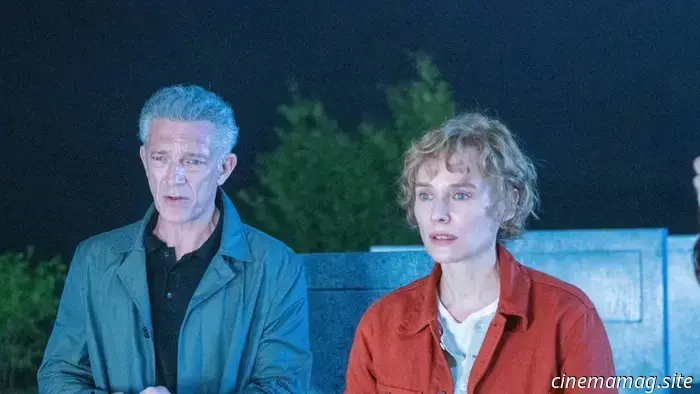What Gambling Films Teach Us About Risk - MovieMaker Magazine
Gambling and cinema are intrinsically linked, as both are fueled by tension, uncertainty, and genuine emotion. You don’t need to be a poker pro to sense the stress of a final hand or the anticipation of a roulette spin. These instances carry emotional significance, not solely due to financial stakes, but because the risks reveal deeper truths about the individuals involved. This is why many filmmakers are drawn to gambling—it offers a quick route to understanding human nature.
From the beginning, films such as The Cincinnati Kid and The Sting explored this connection. The games might appear straightforward, but every look, bluff, and pause adds depth to the drama. These narratives go beyond just winning money—they address themes of identity, pride, and survival.
The environments contribute to the stakes as well. Whether it’s a smoky poker room or a sparkling casino floor, the ambiance serves as a character in its own right. Even contemporary online platforms replicate that vibe—bringing the excitement of Vegas slots to your fingertips, replete with bright lights, spinning reels, and the familiar thrill of near victories. This sensory tension seamlessly translates to film, where directors utilize visuals, sounds, and pacing to maintain an audience’s anticipation.
Rather than presenting a ranked list, this article leads you through various types of gambling films as if you were navigating a casino: poker rooms filled with psychological battles, sportsbook lounges brimming with obsession, neon-lit casino floors swirling with power and crime, concealed back rooms where regulations fluctuate, and unconventional narratives that redefine the essence of a “gambling film.” Each segment evokes its unique atmosphere, tension, and cinematic tempo—much like the games depicted.
Bluffs, Tells, and Cold-Blooded Drama
Poker films excel when they take their time. It’s not about the big wins—it’s about eye contact, body language, and the secrets each character harbors. These exchanges resemble duels instead of mere games, and the finest poker films recognize this.
Rounders remains a standout. It’s not just cherished by poker enthusiasts—it’s frequently quoted, analyzed, and emulated. Damon’s depiction of Mike McDermott illustrates the struggle between skill and self-destruction. Norton’s Worm injects chaos into the mix. What’s striking is how the game mirrors Mike’s ethical turmoil: should he play conservatively or take a risk?
In Casino Royale, Bond's poker face communicates just as much as his words. The game itself is thrilling, but it's the high stakes of life, loyalty, and love that truly engage you. He’s not merely playing cards; he’s wagering his sense of control.
Molly’s Game transports poker from smoky rooms to elite circles, transforming private games into moral conflicts. Chastain’s performance lends weight to a narrative revolving around power dynamics, gender, and the murky boundaries between legality and ethics.
Even California Split, with its chaotic appeal, conveys a deeper message. It’s not pristine; it’s messy, much like reality. Two men caught in the struggle between joy and ruin, employing poker as both a means of escape and a grounding force.
Poker films captivate because they compel close observation. Every action counts. Every pause conveys meaning. Ultimately, it’s less about the cards and more about how people unveil their true selves when they believe no one’s watching.
Odds, Obsession, and Implosions
Sports betting films live on the edge of excitement. There’s an electric thrill in risking everything and witnessing the outcomes unfold in real-time—especially when outcomes are beyond your control. This helplessness, combined with desperate hope, creates the perfect recipe for unraveling.
Uncut Gems doesn’t just portray a man consumed by betting—it immerses you in his psyche. Sandler’s Howard is brash, reckless, and impossible to overlook. Each wager he places feels like a cry for validation. The tension remains relentless, as the film explores not just risk—but the chaos needed to truly feel alive.
Two for the Money delves into the flashy domain of sports betting, but beneath the bravado lies a narrative about identity and manipulation. Pacino’s character instructs McConaughey on how to sell certainty in a chance-driven world, and that contradiction fuels the film.
Even Silver Linings Playbook, a drama centered on family and mental health, incorporates a gamble. The parlay bet near the conclusion isn’t merely about money—it symbolizes hope. It’s about reconstructing a life with unpredictable elements.
Sports betting narratives frequently culminate in collapse, as obsession rarely results in clear outcomes. There’s often a moment of clarity, a realization that pursuing odds leads to losing touch with reality. These narratives resonate powerfully because they reflect how many of us seek control over things we cannot possess—and how that rarely ends well.
Glamour, Crime, and the Game Within the Game
Films centered around casinos present a different kind of intensity. They’re loud, colorful, and imbued with bravado. Yet beneath the flashy exterior
Other articles
 New to Streaming: The Shrouds, The Phoenician Scheme, Ghost Trail, Invention, and More
Every week, we showcase significant titles that have just been released on streaming platforms in the United States. Take a look at this week's picks below and find previous collections here. *All Dirt Roads Taste of Salt* (Raven Jackson) This film, which seems to emerge from deep within the earth, is Raven Jackson's lyrical, measured debut, serving as a pure essence of cinema.
New to Streaming: The Shrouds, The Phoenician Scheme, Ghost Trail, Invention, and More
Every week, we showcase significant titles that have just been released on streaming platforms in the United States. Take a look at this week's picks below and find previous collections here. *All Dirt Roads Taste of Salt* (Raven Jackson) This film, which seems to emerge from deep within the earth, is Raven Jackson's lyrical, measured debut, serving as a pure essence of cinema.
 Red Sonja Noir #1 - Comic Book Sneak Peek
Dynamite Entertainment is set to release its one-shot special, Red Sonja Noir #1, next week. You can take a look at the official preview below. The fiery-haired warrior of song and lore finds herself in hot water again in this fresh story of gritty Hyboria! When her mercenary partner is killed, Sonja becomes embroiled in a passionate search [...]
Red Sonja Noir #1 - Comic Book Sneak Peek
Dynamite Entertainment is set to release its one-shot special, Red Sonja Noir #1, next week. You can take a look at the official preview below. The fiery-haired warrior of song and lore finds herself in hot water again in this fresh story of gritty Hyboria! When her mercenary partner is killed, Sonja becomes embroiled in a passionate search [...]
What Gambling Films Teach Us About Risk - MovieMaker Magazine
Gambling and cinema are closely linked as they both rely on suspense, uncertainty, and intense emotions. You don't have to be a poker pro to sense the
